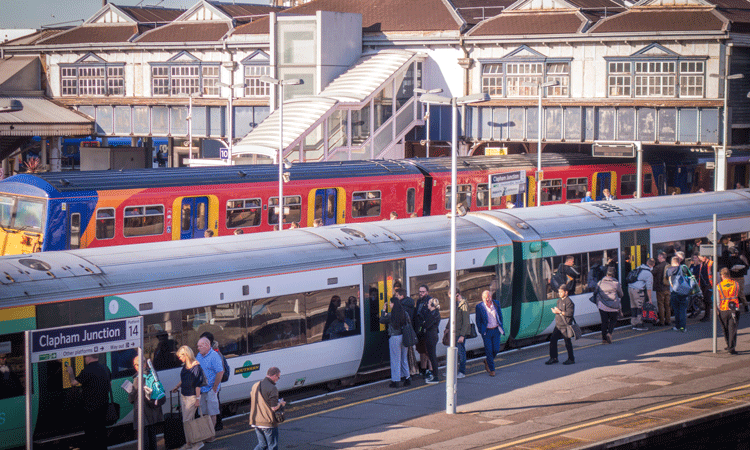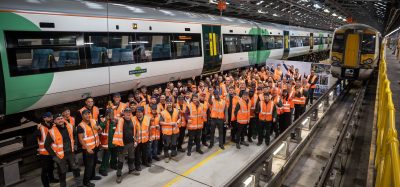Is it time to rethink the structure of how Britain’s railways operate?
Posted: 28 January 2019 | Darren Shirley | 2 comments
Reflecting on the recent difficult times for Britain’s railways, Darren Shirley, Chief Executive of Campaign for Better Transport, explores the opportunities that could lead from the governments ‘root and branch’ review of rail, the implications of Brexit and recognising that the most important part of the railway is its passengers.


2018 was a difficult year for Britain’s railways to say the least. The disastrous introduction of the new network-wide timetable in May led to the near collapse of whole parts of the network, leaving people up and down the country unable to get to work, to attend medical appointments or get back home as more and more services were disrupted. Then in September, figures showed rail punctuality had slumped to a 12-year low, with one in seven trains late.
‘Root and branch’ review
It seemed clear to everyone that things had reached crisis point. So when the government announced it was to conduct a ‘root and branch’ review of the railways led by former British Airways Chief, Keith Williams, it seemed long overdue. The government says it wants the review to ‘consider ambitious recommendations for reform to ensure our vital rail system continues to benefit passengers and support a stronger, fairer economy’.
The review is an opportunity to rethink how the railways operate not just on a day-to-day basis – things like ticketing, fares, overcrowding, routes and on-board facilities – but also more fundamental aspects, such as how the railway is structured and the role it plays as a modern transport network supporting communities and the economy.
Will Brexit bring change?


Could Britain’s exit from the European Union give room for manoeuvre in the way our railways are run?
On industry structure, Williams’ will be expected to focus on further integrating track and train operations, currently run separately by the franchise holder and Network Rail. The Transport Secretary Chris Grayling (and many in the industry) has long seen this as a cause of the railway’s ills, but so far he has been hamstrung in doing much more than encouraging joint working. Britain’s exit from the European Union would give him much more room for manoeuvre. The EU’s Fourth Railway Package is a barrier to so-called vertical integration between train and track operations, overtly requiring that they be managed by separate bodies. Brexit would remove this obstacle, potentially giving Grayling the ability to create franchised train businesses responsible for both running the trains and day-to-day management of the tracks. This would be a massive change. But there’s a question on whether it is the right change.
Any changes to structure will need to go hand-in-hand with changes to the franchising system. Recent high-profile failures have thrown the spotlight on a system under huge pressure. Unless action is taken to reform the system, the railways risk further instability further eroding public good will.
Rail has been the victim of its own success
In the last 20 years, the expectation of what operators should deliver has transformed from running trains as cheaply as possible to managing an integral piece of national infrastructure in a way that delivers high levels of revenue growth and capacity while meeting increasingly challenging quality targets and detailed social and environmental objectives.
The result is a thoroughly unwieldy system. Franchises have become huge in terms of the area they cover, the revenues at stake, and the period they run for. They are too large to be effectively managed by the Department for Transport (DfT), or for passengers and communities to make their voices heard in decision making.
‘One size fits all’?
Change is needed. There can no longer be a ‘one-size-fits-all’ model to franchising. Selling packages of slots like airlines might work for intercity routes. Busy commuter routes could be run as concessions while urban rail should prioritise integrated transport across city regions. This is part of what Williams and the review team should be focusing on – but it all needs to be grounded in what would deliver the best outcome for passengers and the communities the railway serves.
Overhaul of fares
The review’s remit also covers fares and financing. Here, further tinkering will simply not suffice. Rail companies themselves have already recognised that a radical overhaul of fares is long overdue. Now there needs to be proper reform based not on the interests of the Treasury, but one which recognises the railways as an essential public service that delivers major benefits to communities and the economy.
The railways deserve financial support, but in return passengers need a fares system that makes it easier and more affordable to use. That means an end to Byzantine fares structures and the way regulated fares are calculated. In their place we need season tickets which recognise the way we work has changed, compensation for overcrowding and poor performance, proper consideration of distance-based charging, zonal fares in and around major conurbations, multi-modal ticketing and much more besides.
Including the passengers
The first ‘listening’ stage of the review closed in December 2018. We have submitted our views and, thanks to a supporter survey, those of 2,000 passengers as well. We think that passengers’ needs should be at the heart of this review, that’s why it was vital to include as many of their views as possible in our submission.
Now it’s time for the government to recognise that the most important part of the railway is its passengers.
Biography


Darren Shirley is the Chief Executive of Campaign for Better Transport. He joined the charity from Which?, where he led on its regulated and retail markets campaigning, and has over 10 years of experience in the environmental sector having working for WWF, Greenpeace UK and National Energy Action.
Related topics
Brexit, Franchising, Infrastructure Developments, Passenger Experience/Satisfaction, Rail Fares/Ticket Pricing, Regulation & Legislation, Route Development
Related organisations
Campaign for Better Transport, Department for Transport (DfT)








I mainly agree with J vd Zwaluw
After Brexit (and it will be a HARD Brexit) the UK will have no money to do anything meaningful with the rail sector. The empire is gone in case you haven’t noticed
Bertil Hylén, Sweden.
Having lived in the UK as well as in continental Europe, to state the EU is to blame and limiting integration between rail and operator is a farce. There is a very good reason why this separation is done, mainly allowing multiple operators operating on the same rail, optimising capacity. This is working well in most countries, except where operators are in the mindset that they have to deliver a positive financial profit to their investors and therefore will do anything to limit the profit capacity of a competitor. If instead communication between the rail operator and the train operators is established and respectful to eachother, then you will see better services. Not the make as much money as we can out of fare paying customers, with investing as little as possible.